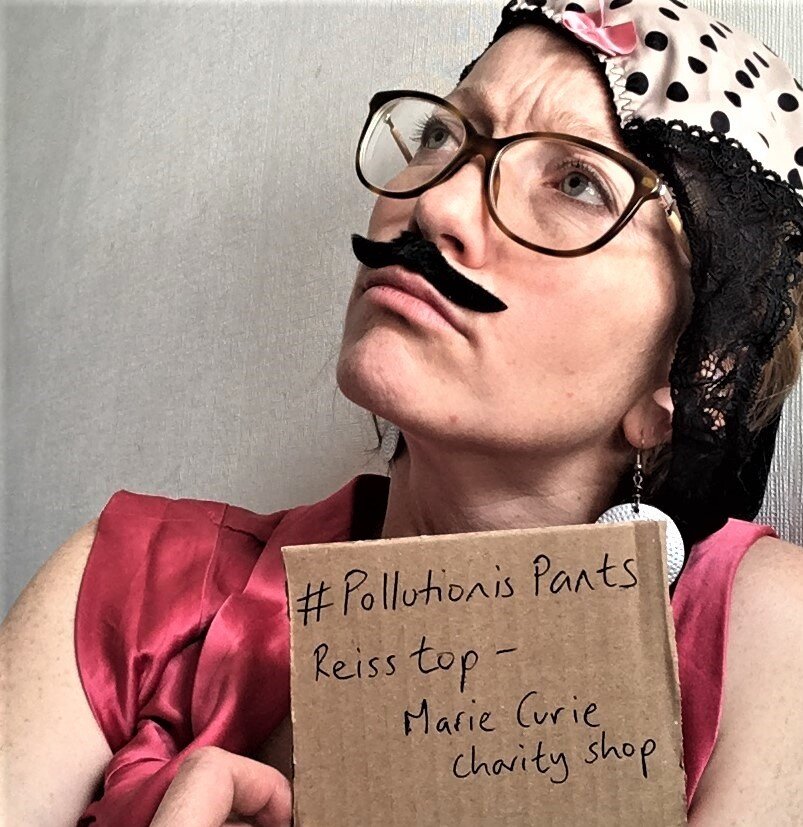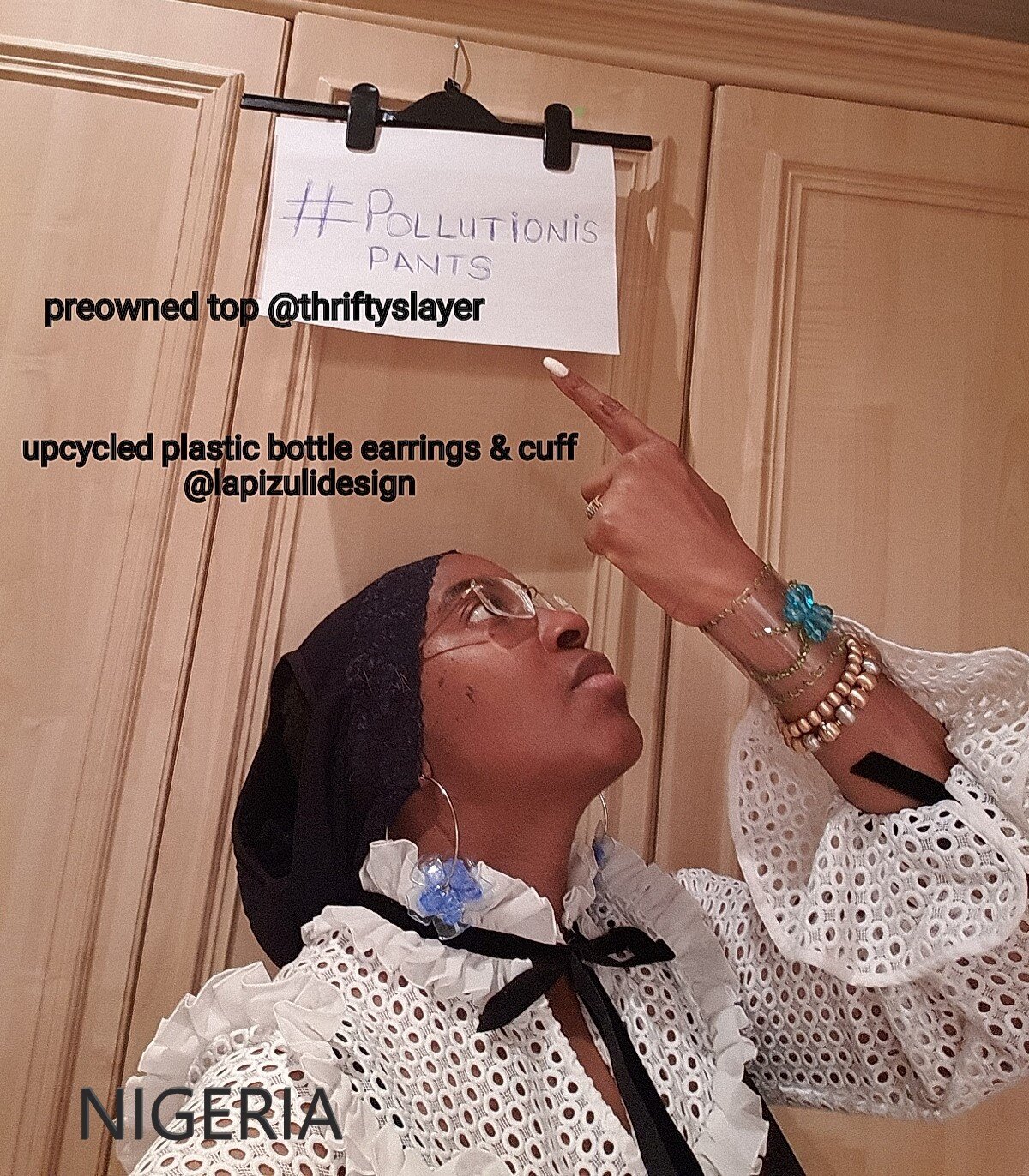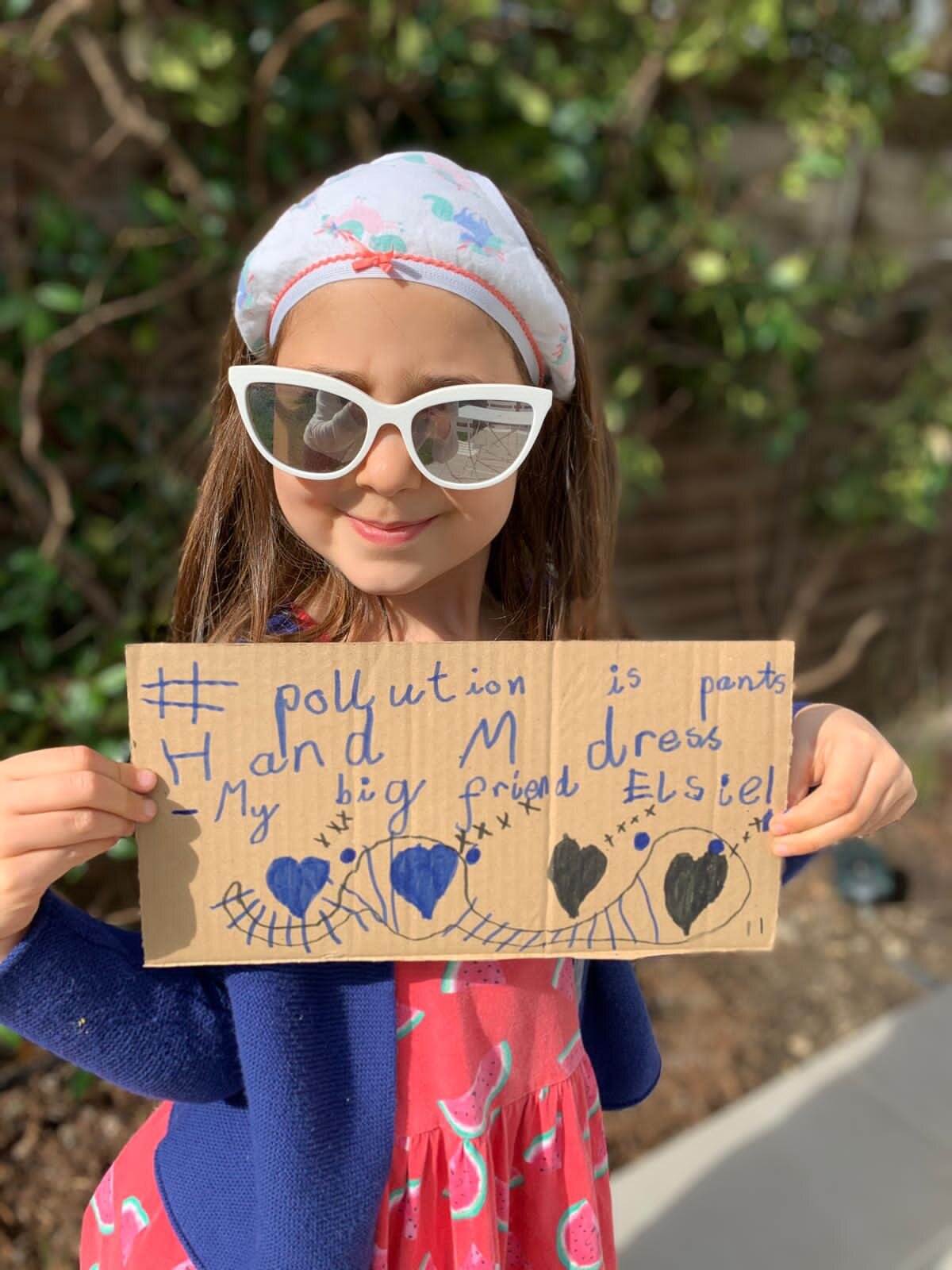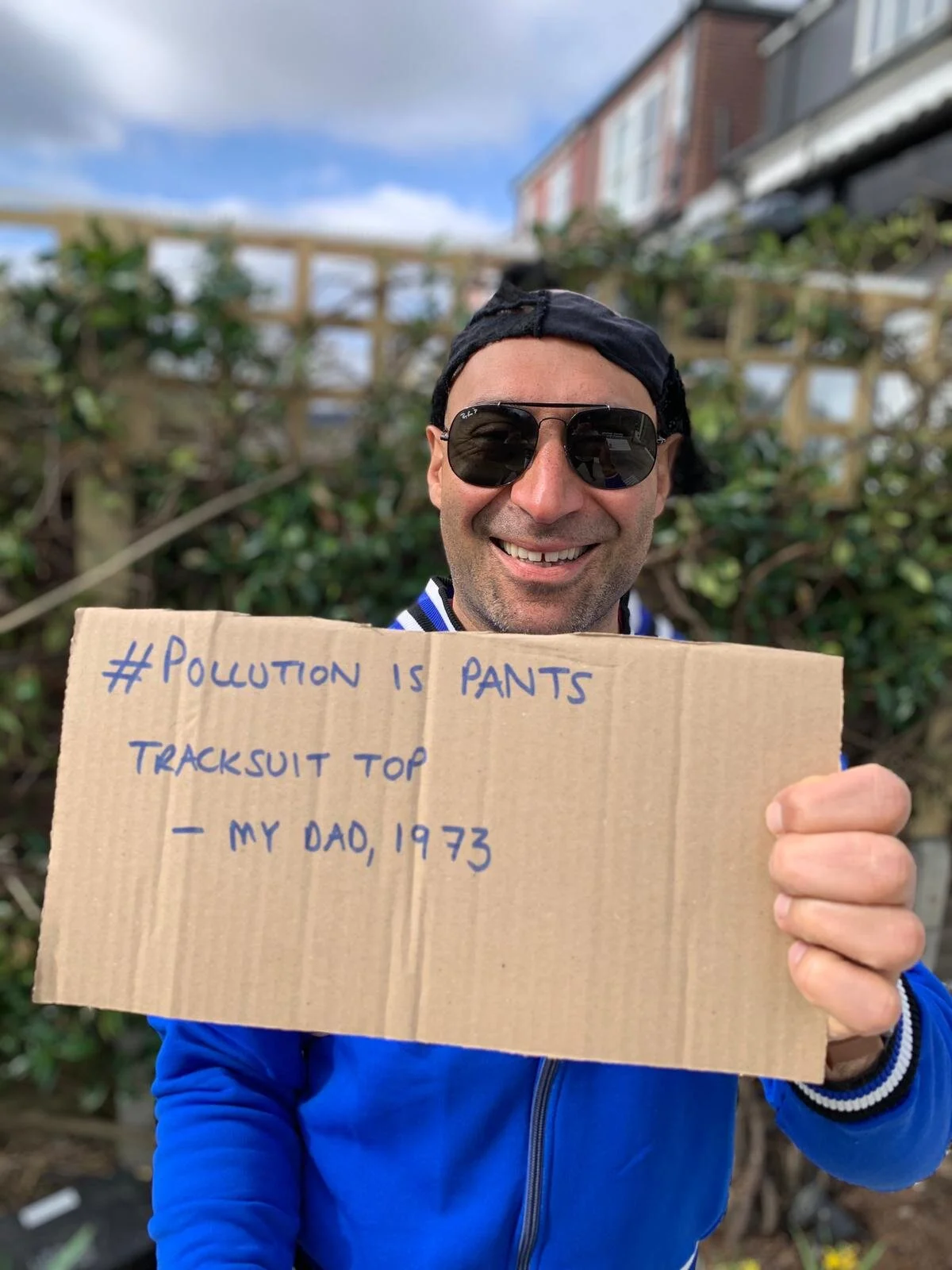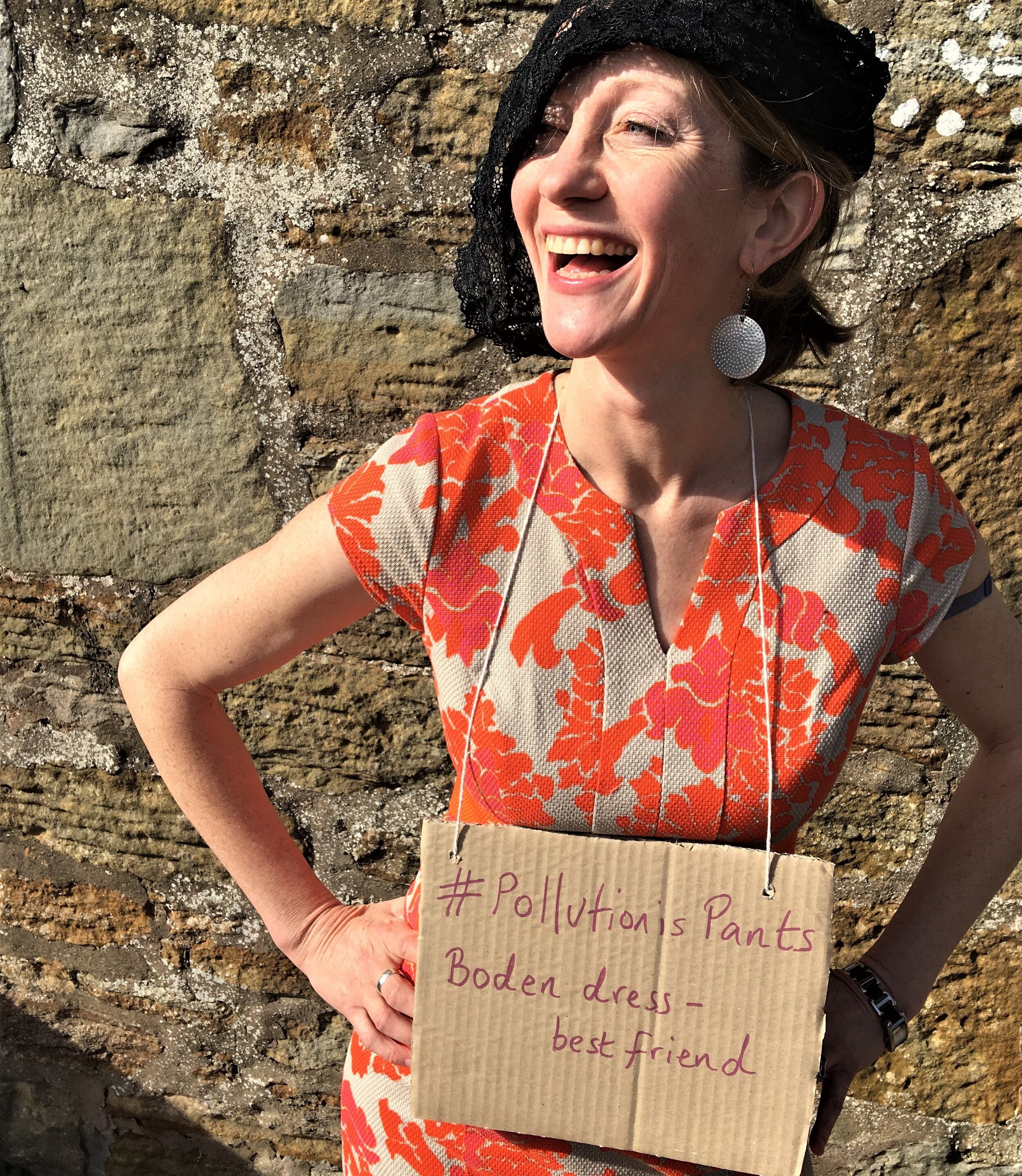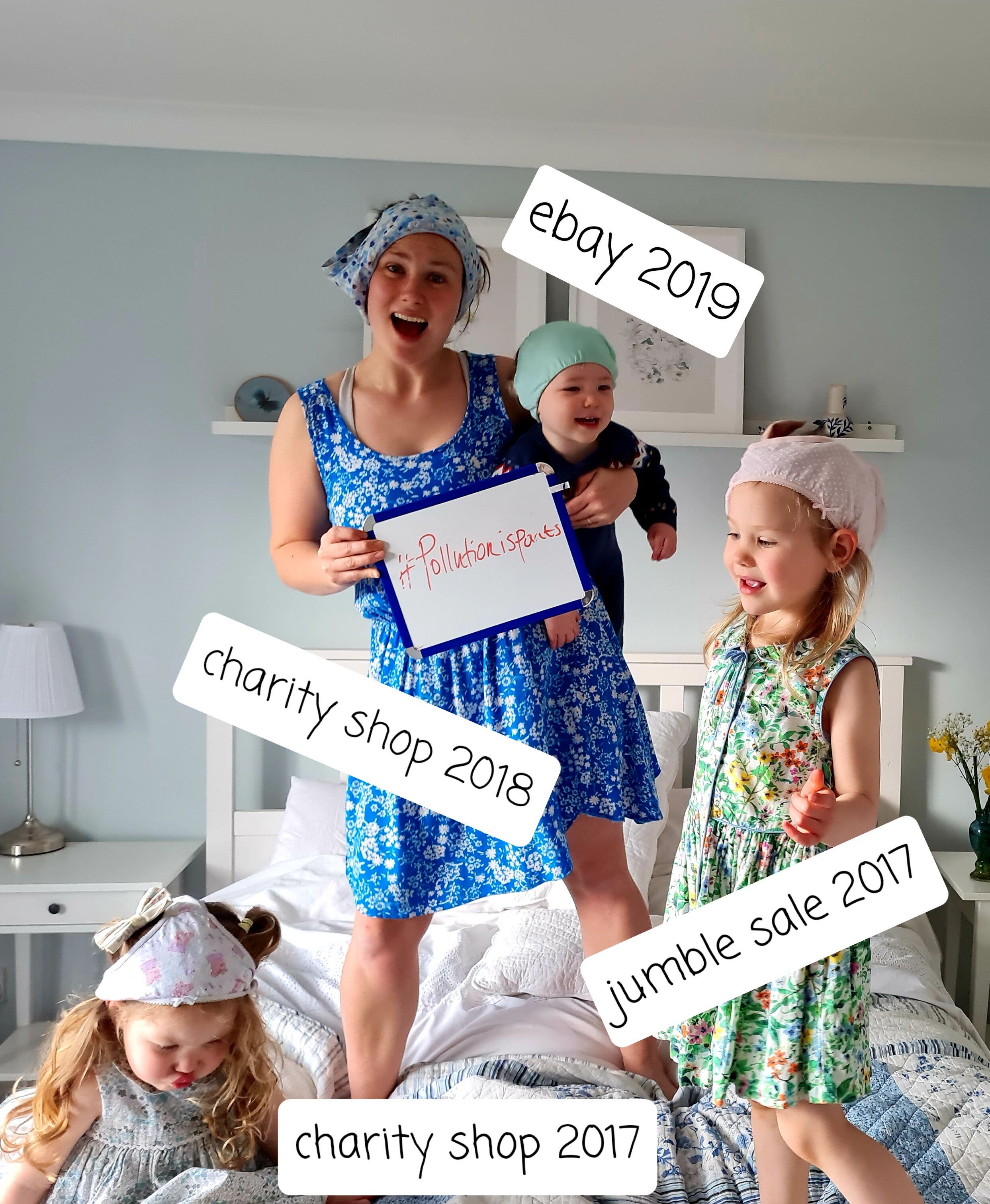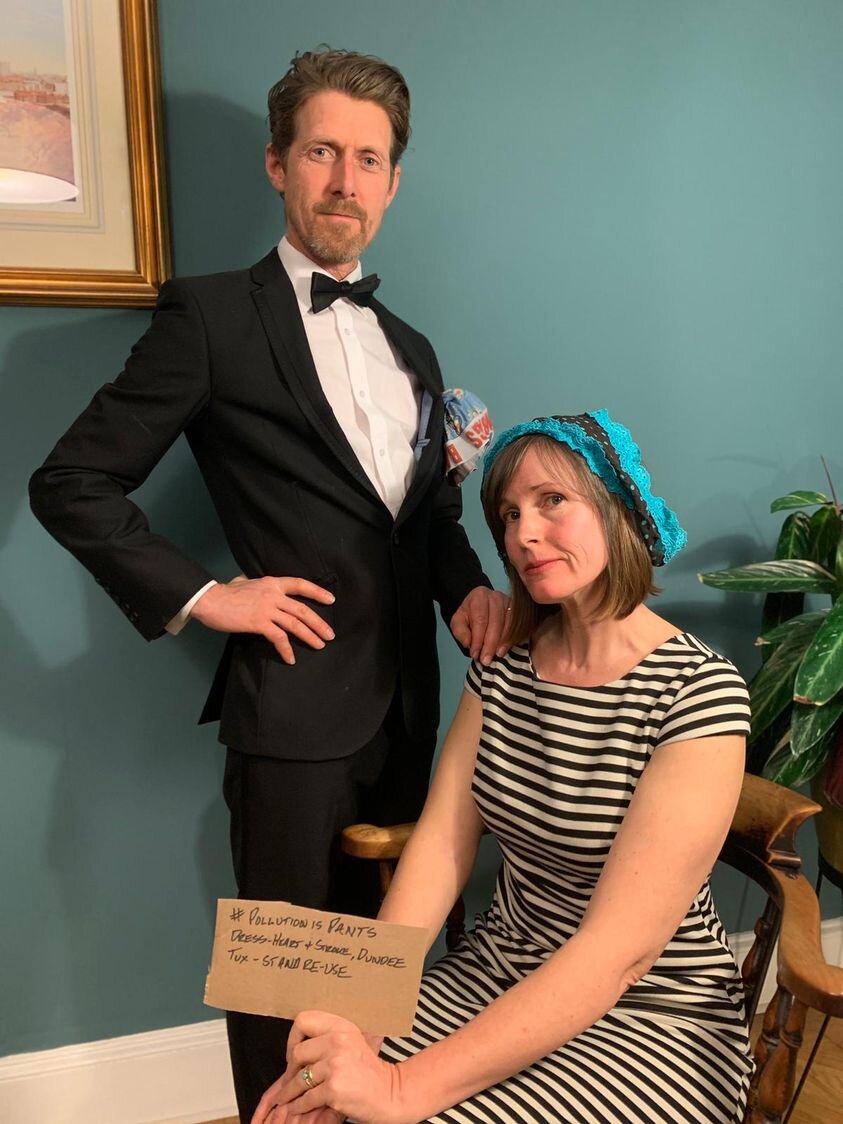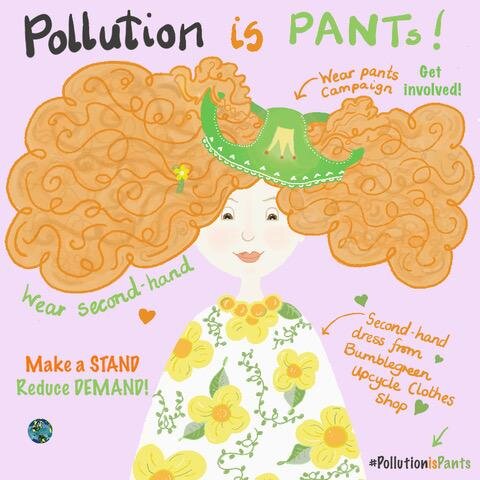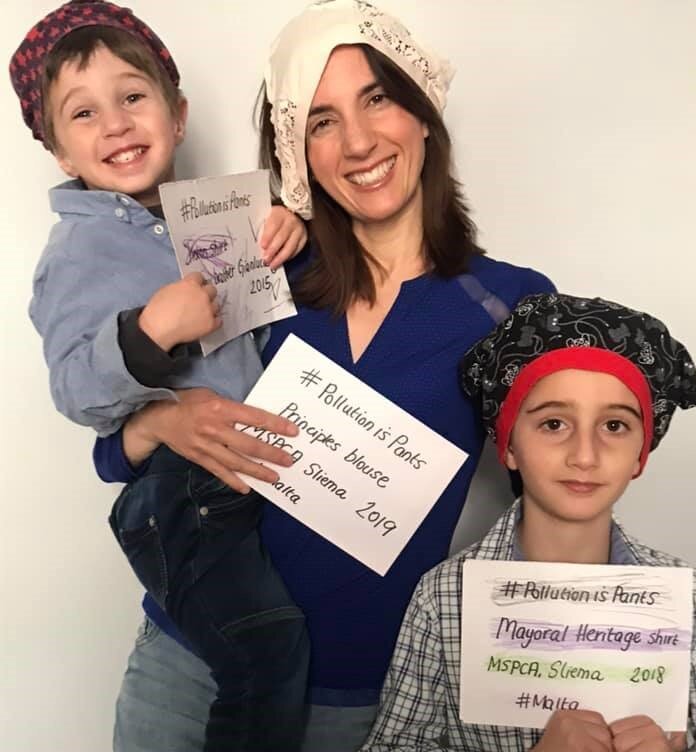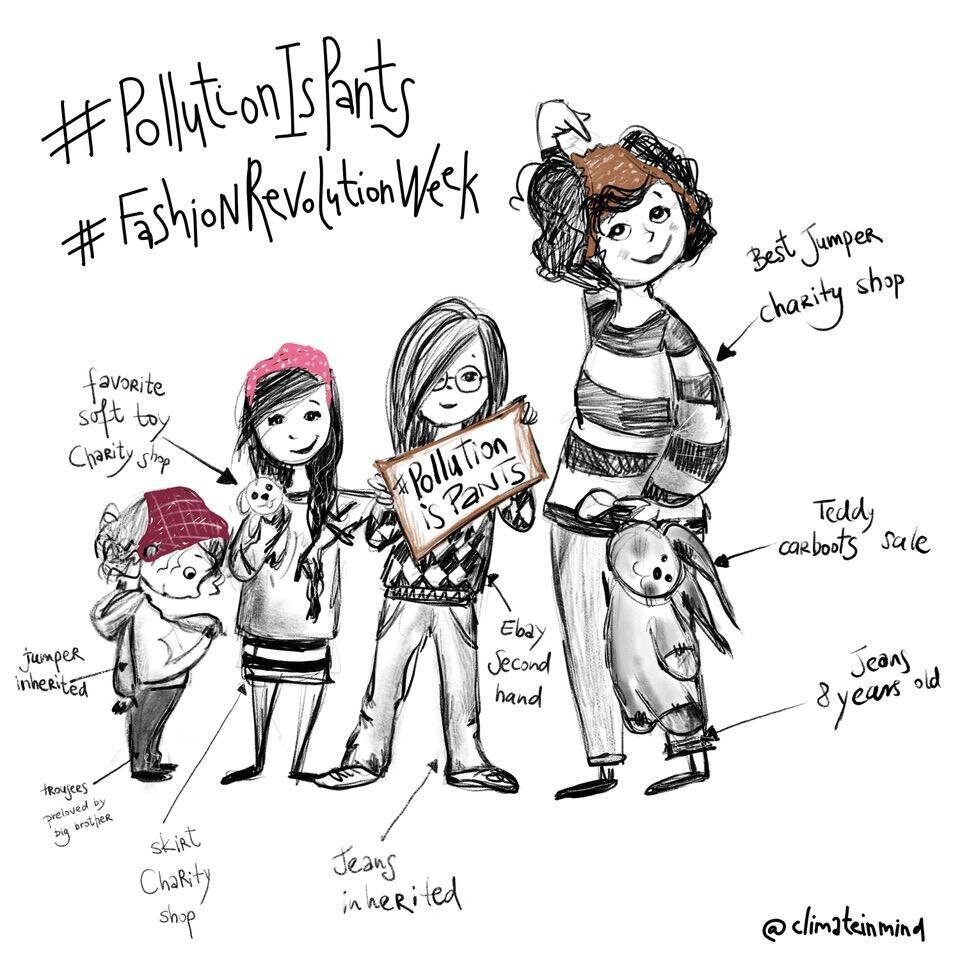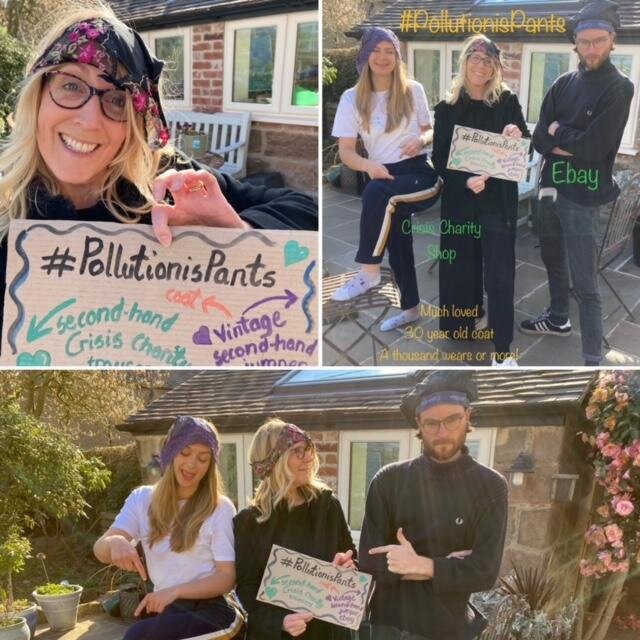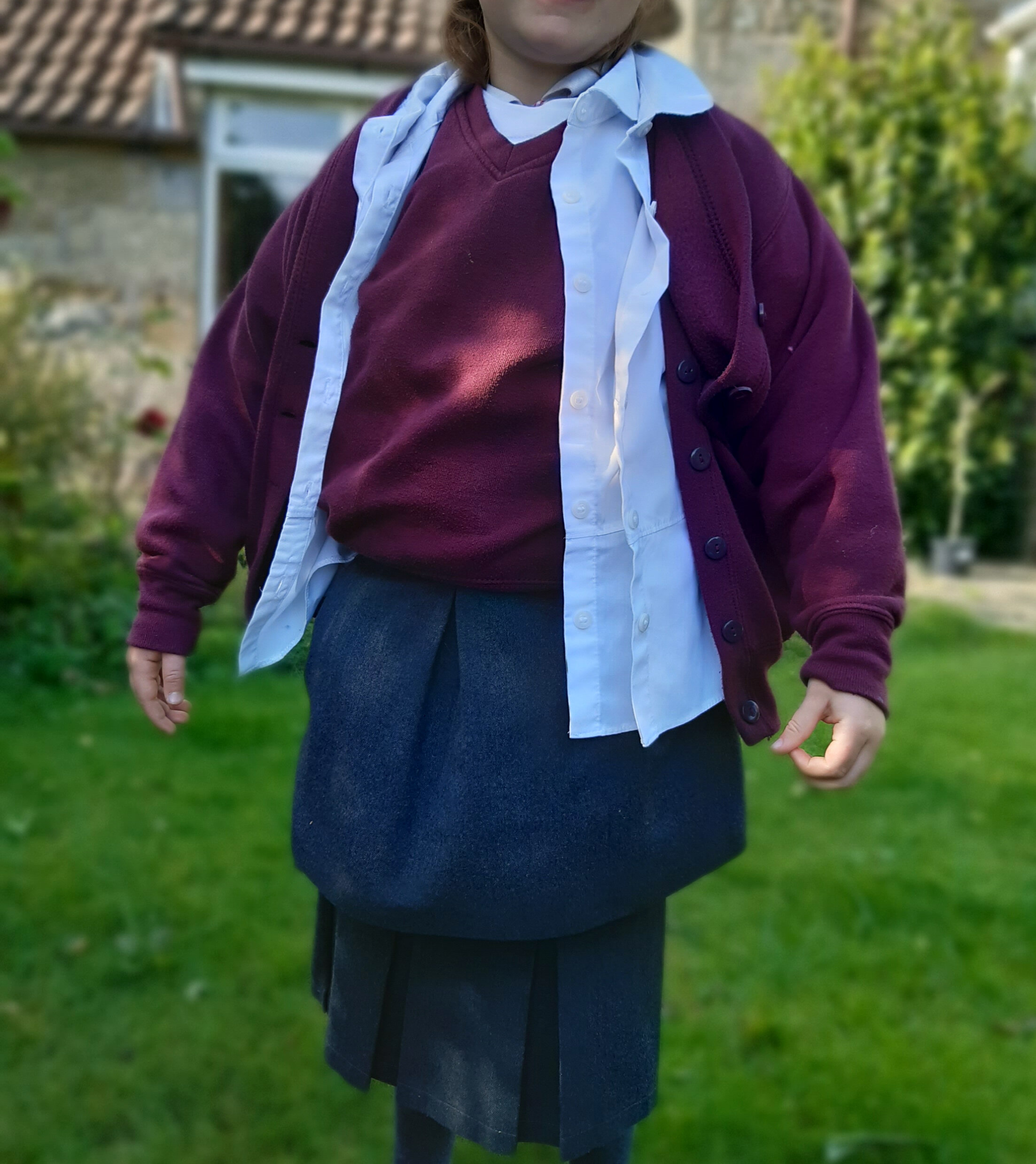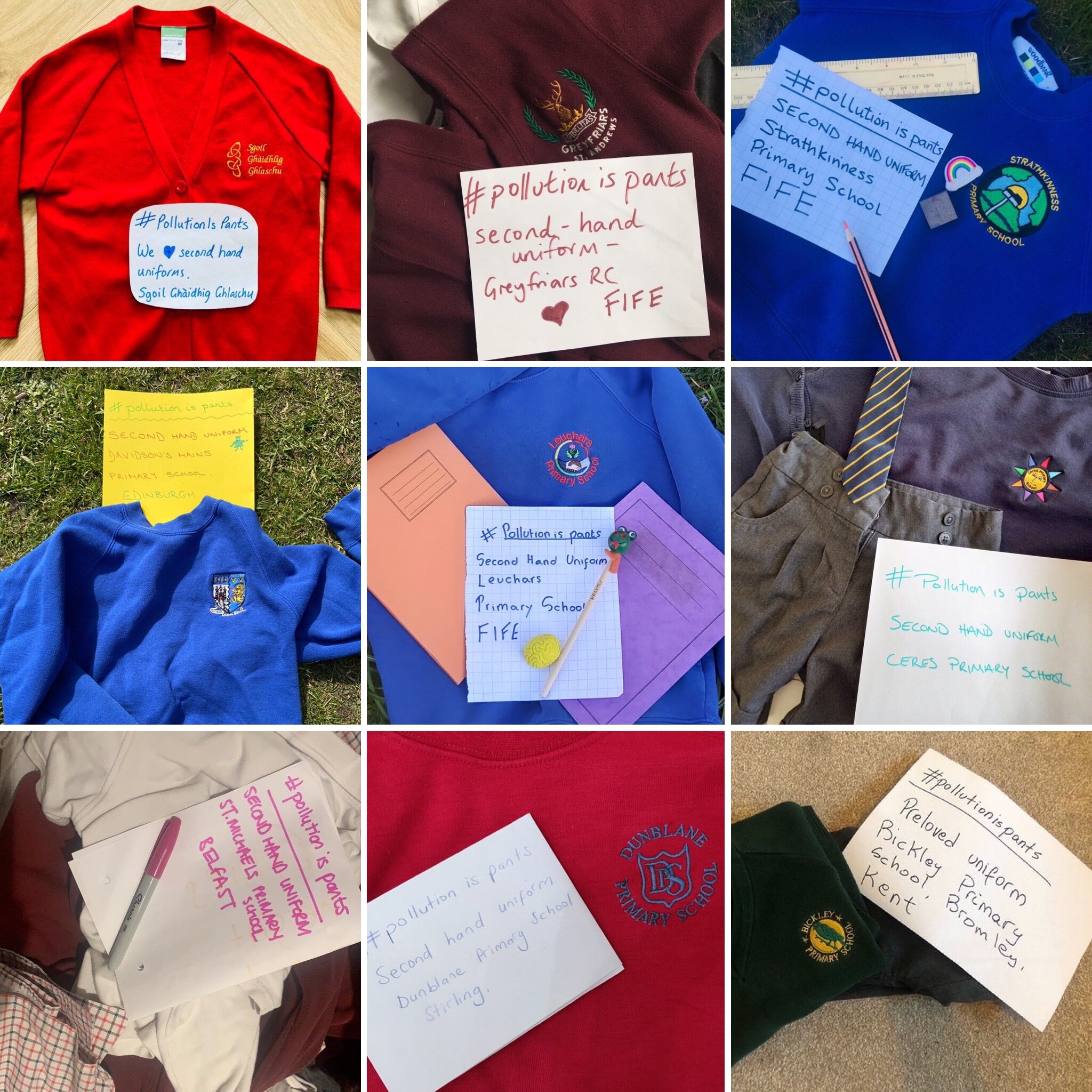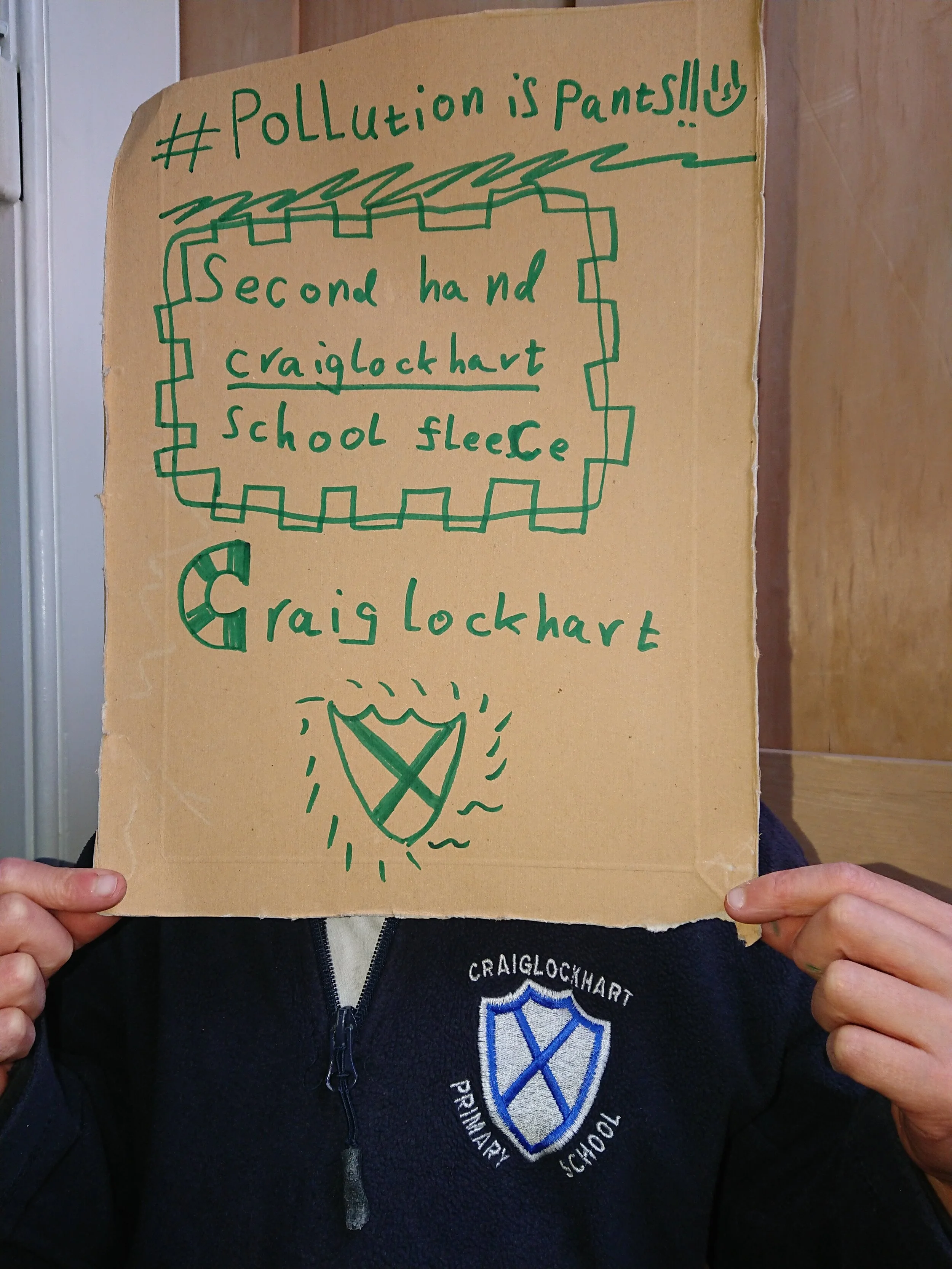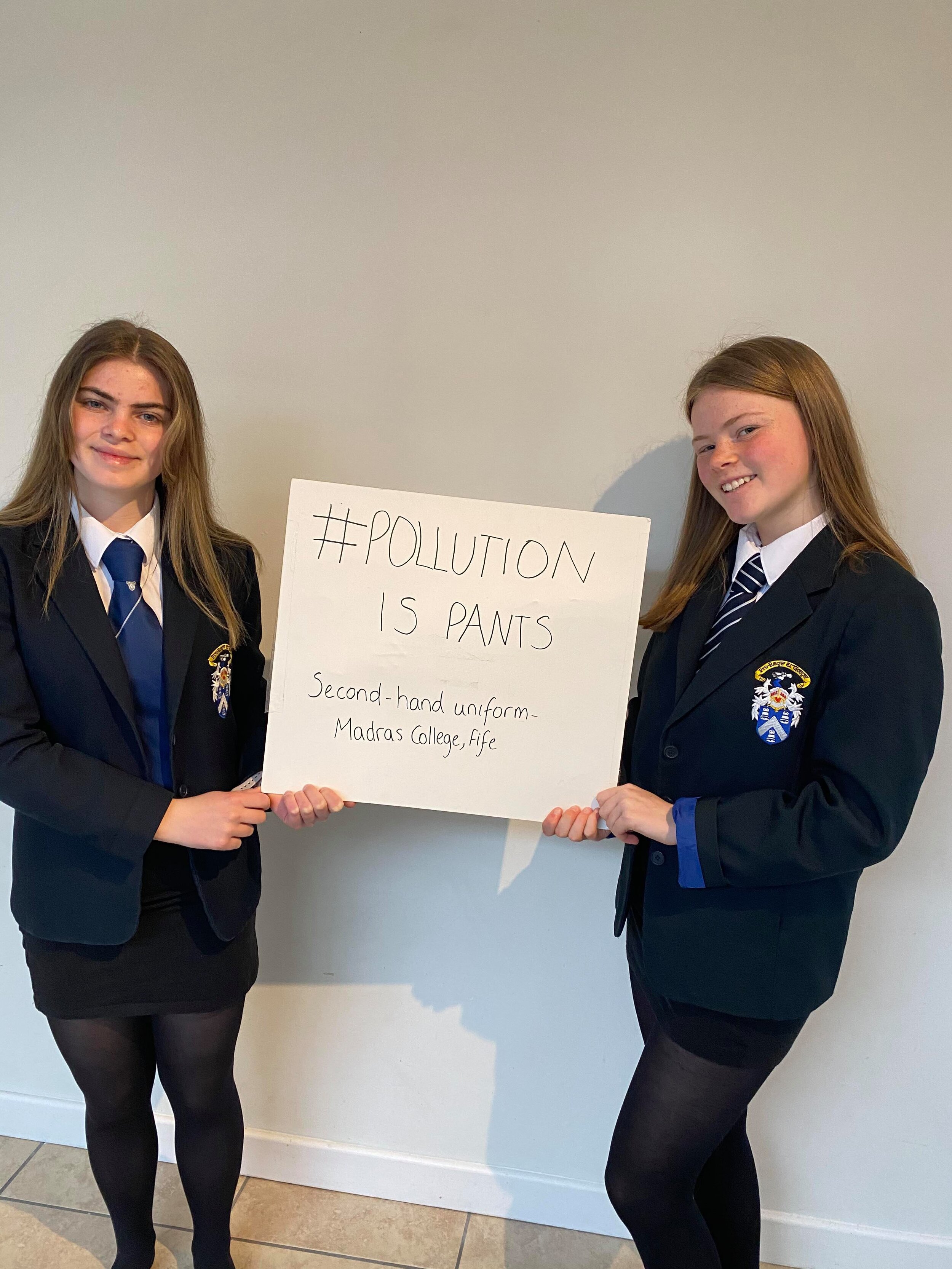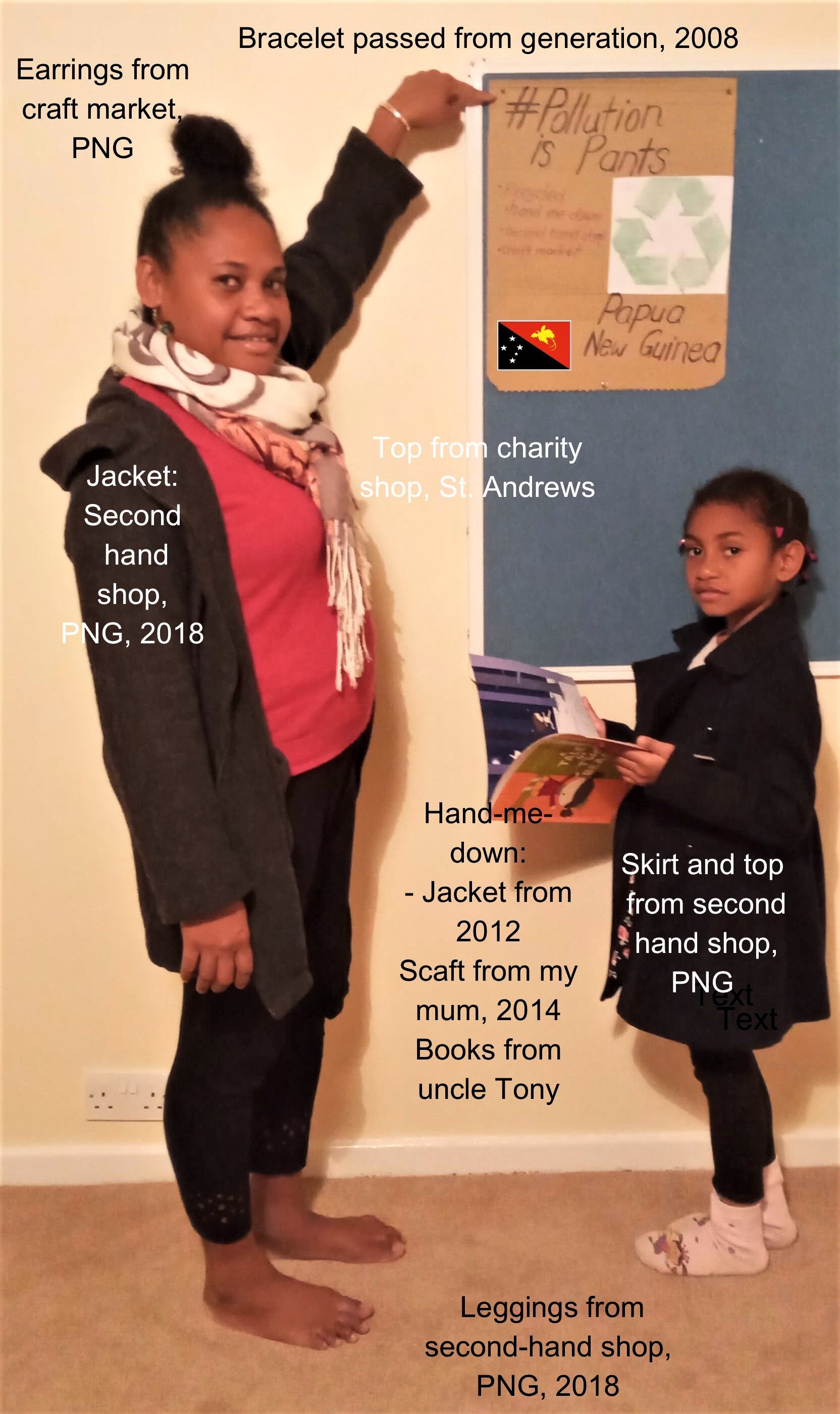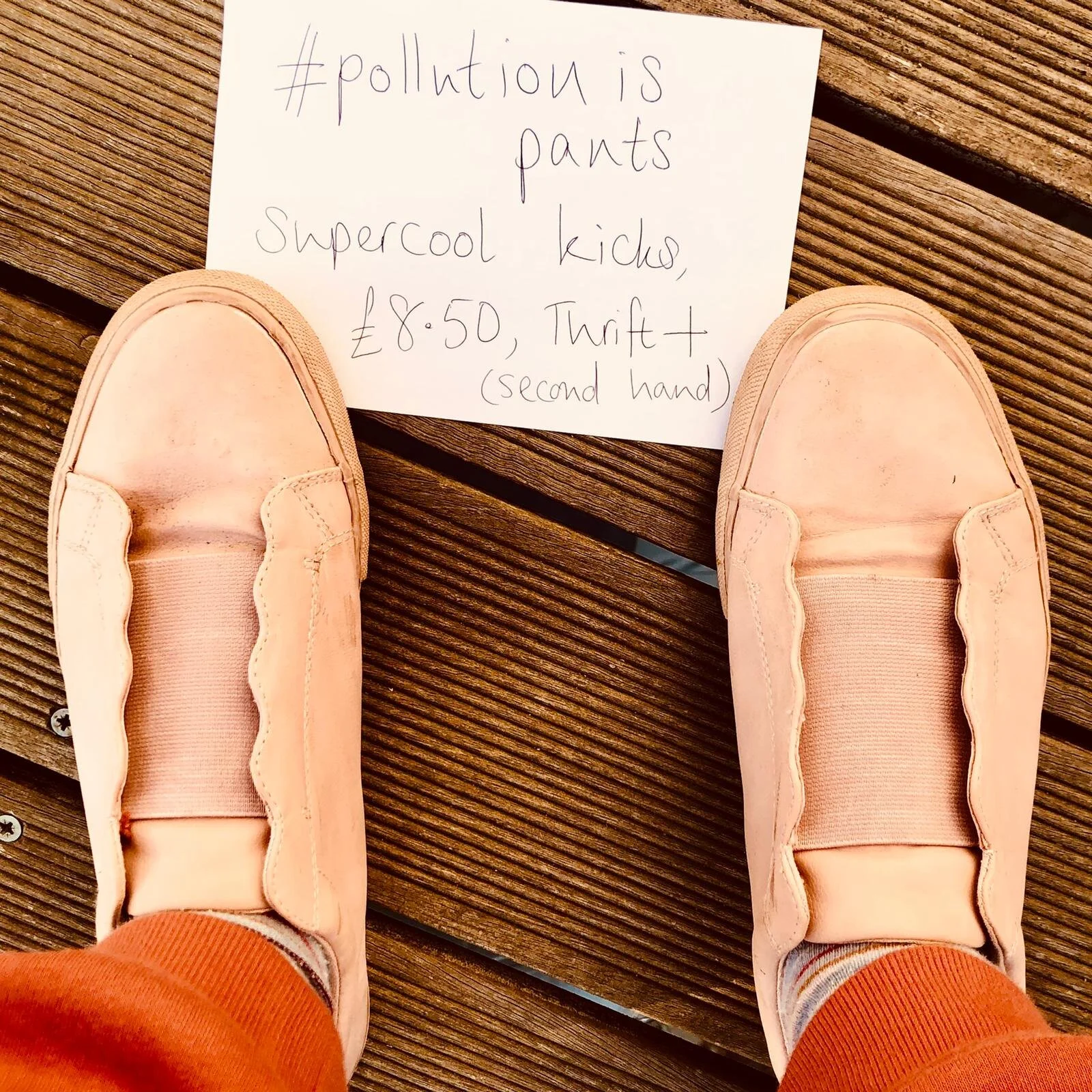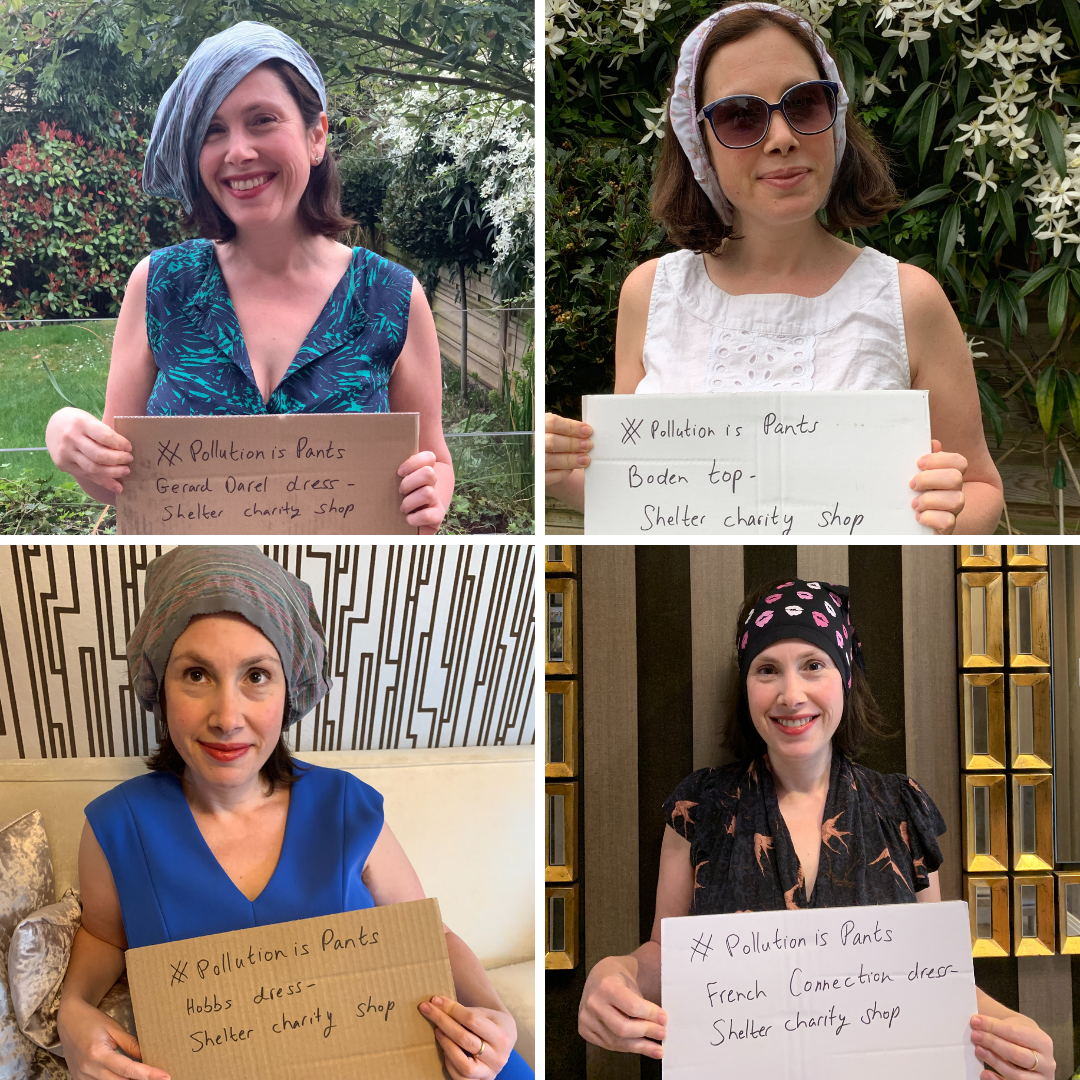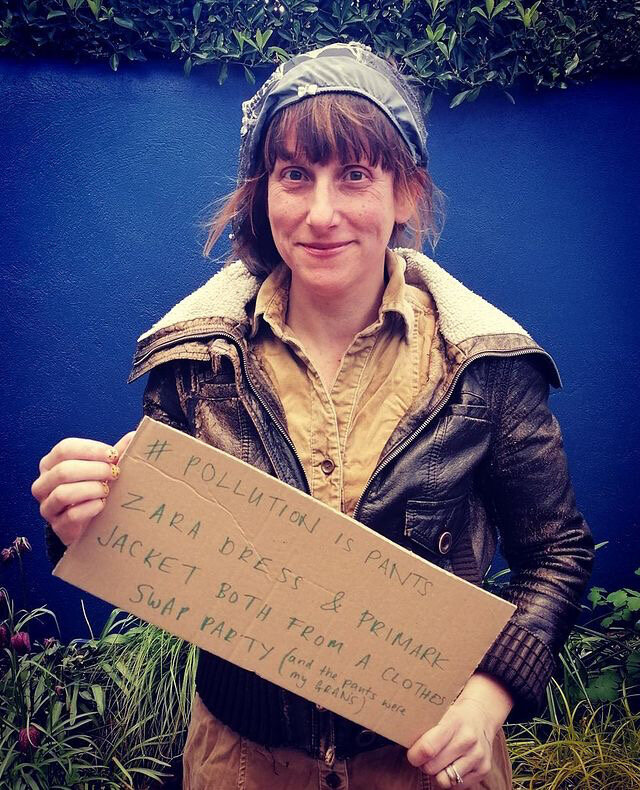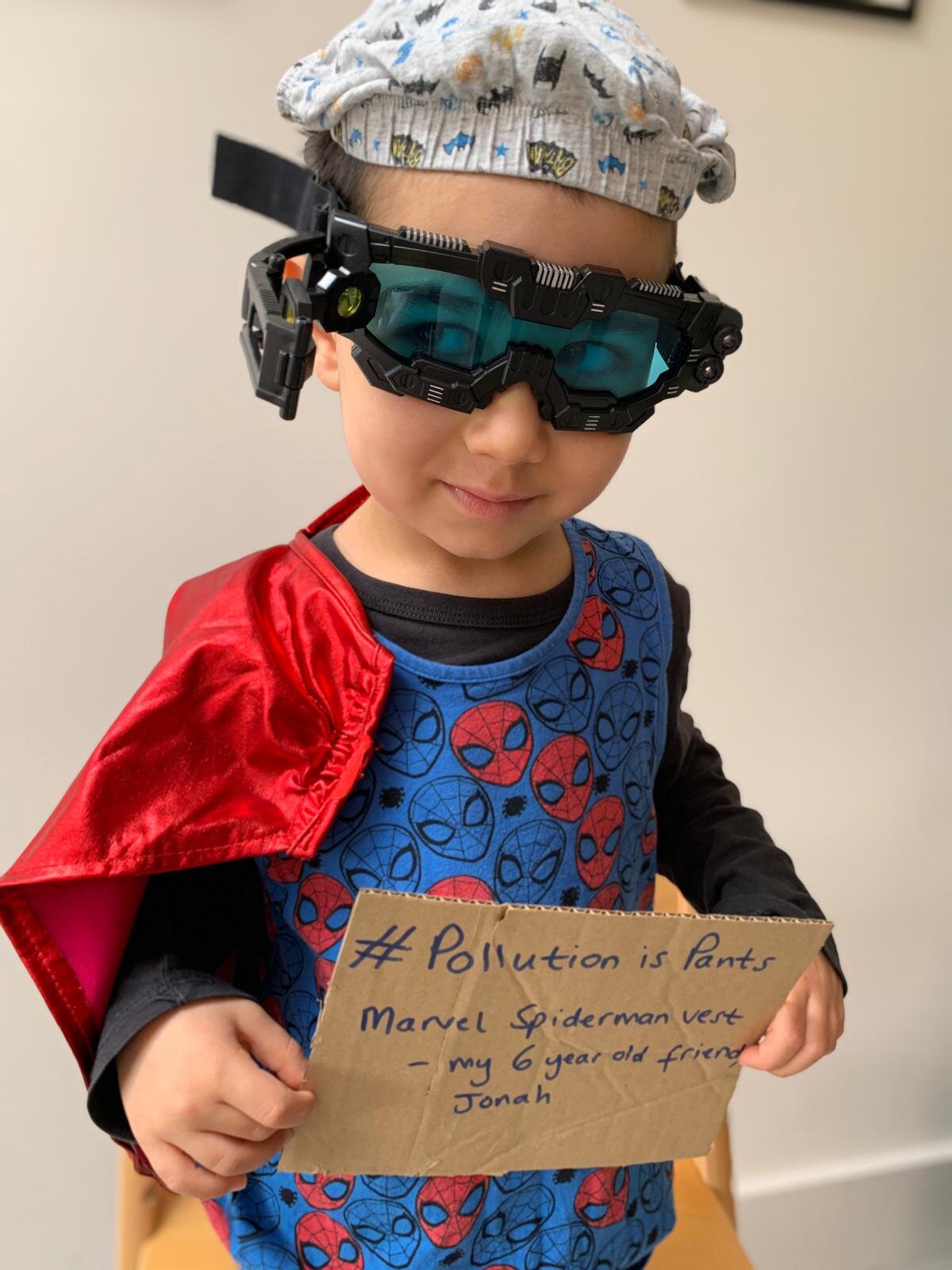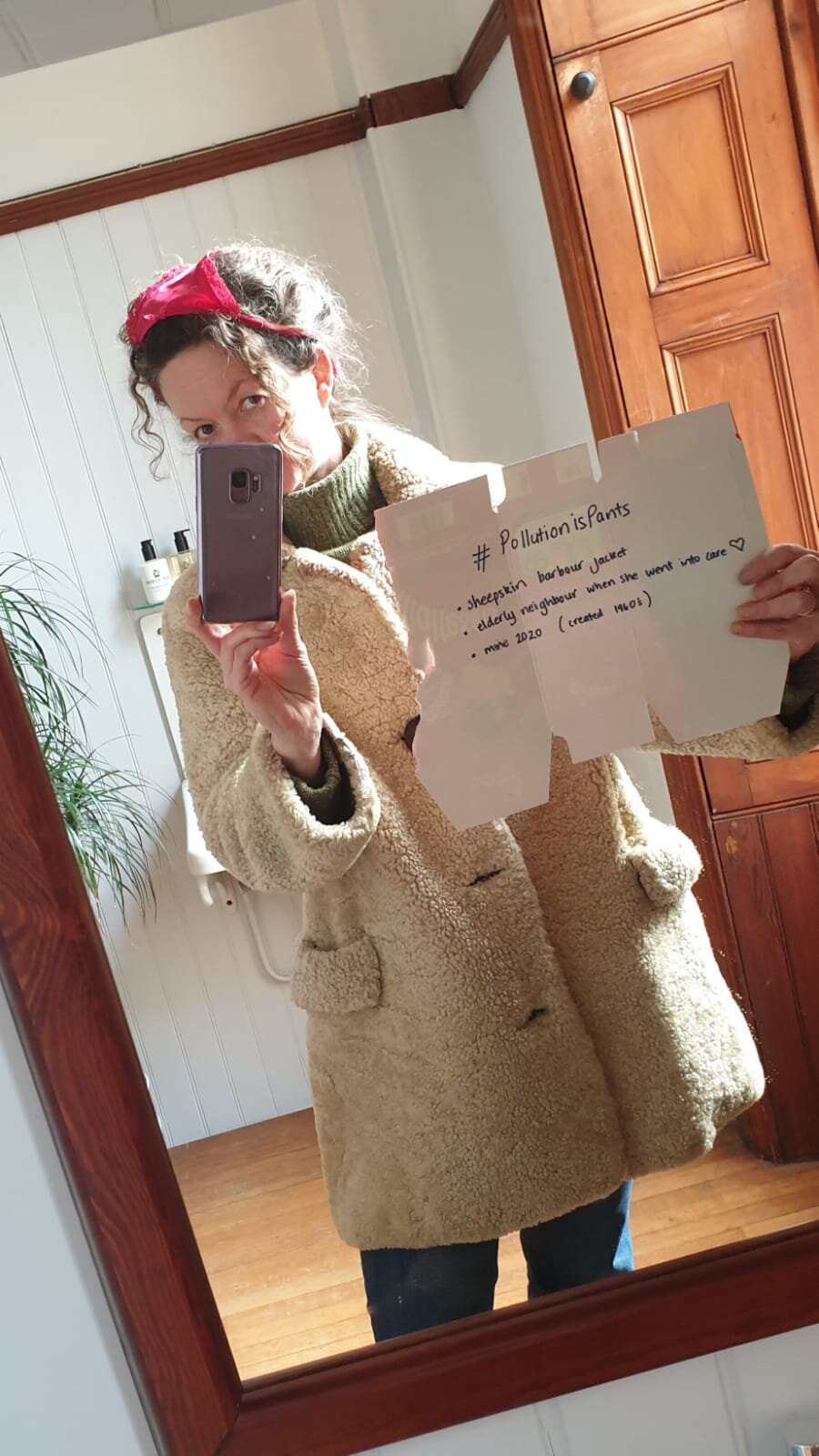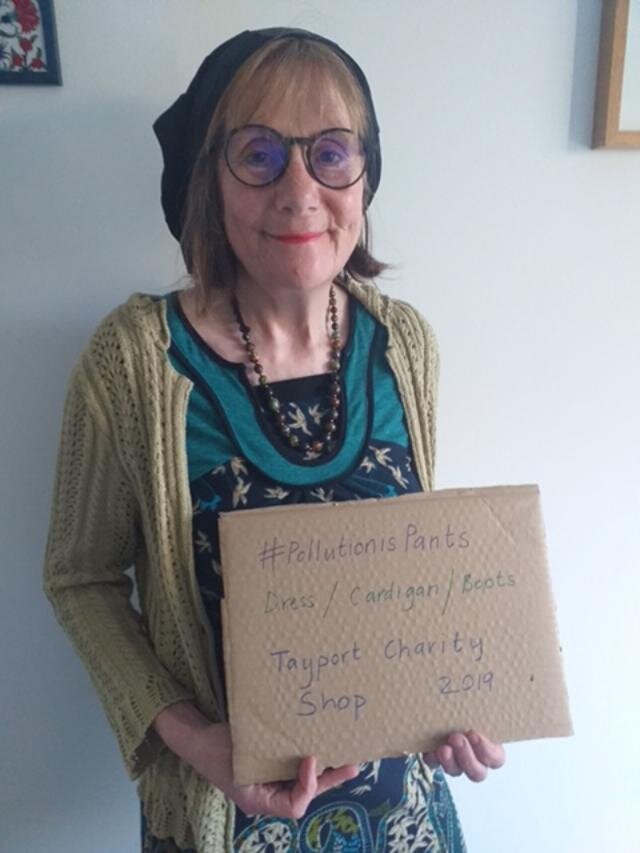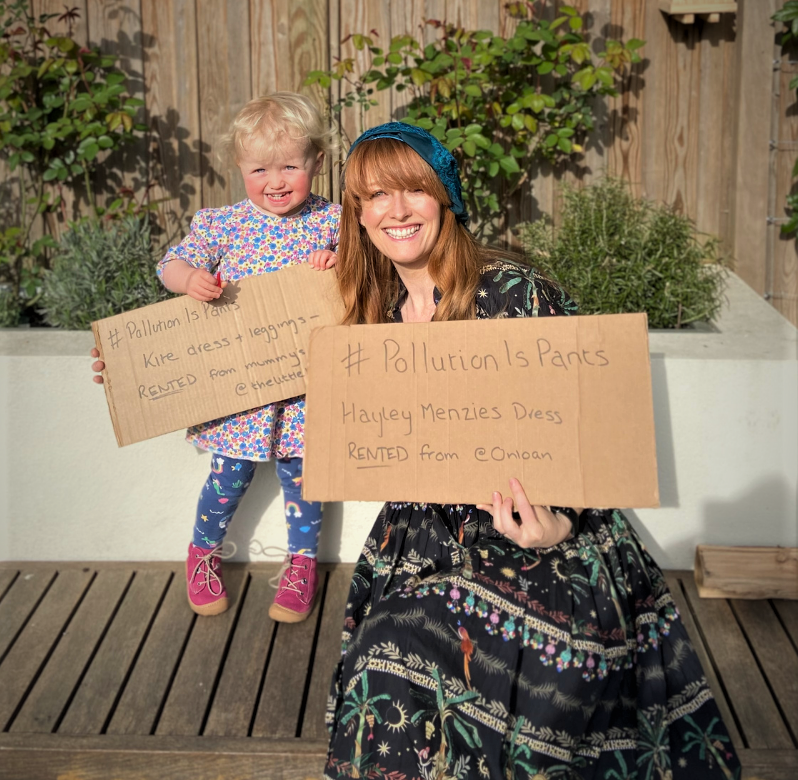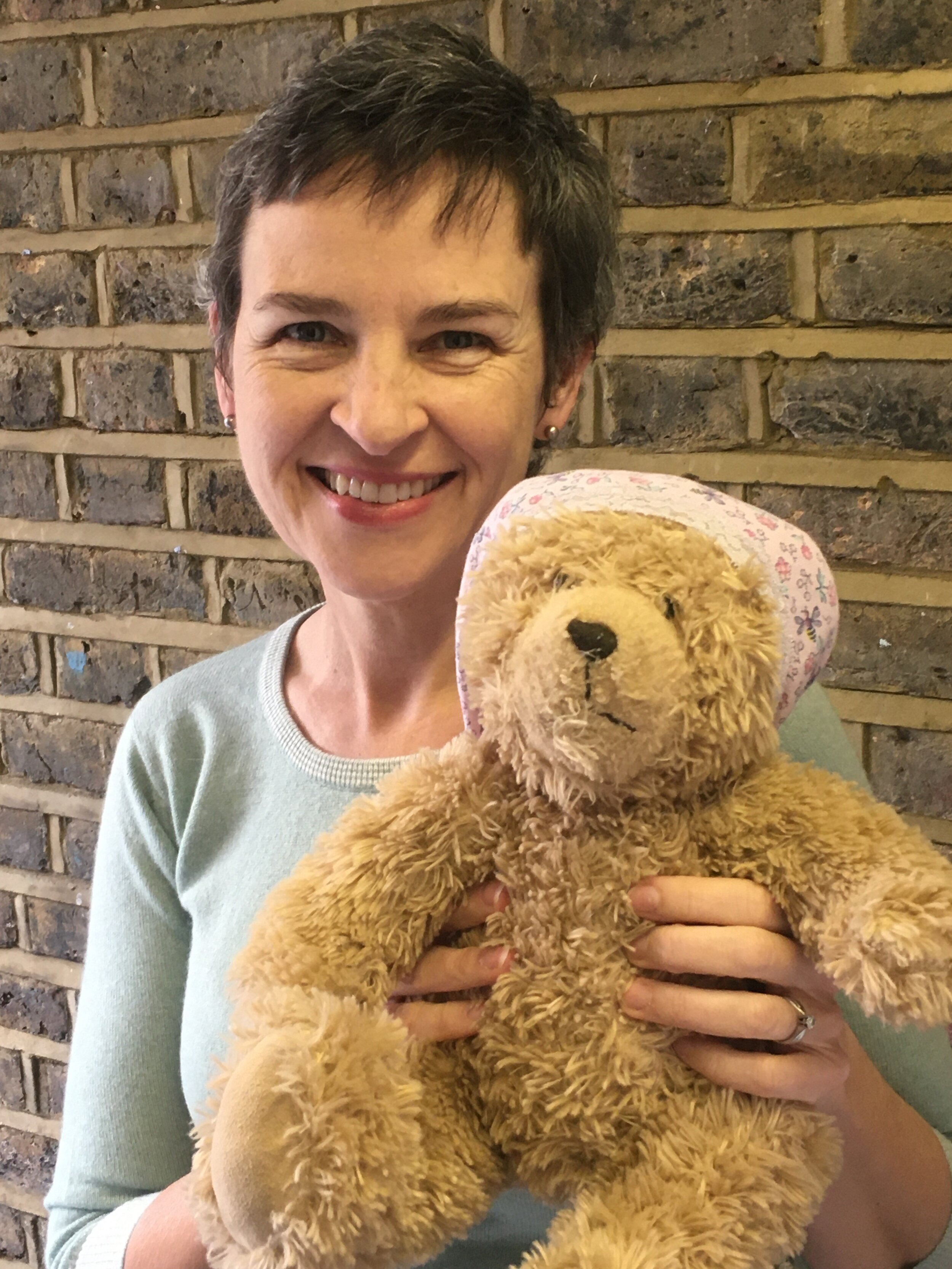“I love your work, you have such a great take on all of this”
The campaign
Running between 8th and 25th April 2021 the #PollutionisPants campaign celebrated the joy, environmental significance and community-building that wearing second-hand clothes brings, in the lead up to Fashion Revolution Week (19th - 25th April). Keeping clothes in play - by wearing preloved, looking after what you’ve got and upcycling clothes - is the most sustainable fashion choice you can make. [See bottom of page for Resources]
In England, when you say something ‘is pants’ it means ‘it’s rubbish’. The ‘pants’ bit also refers to the fact that underpants are one of the very few items you can’t get second-hand – no quibbles there – and the ‘pollution’ bit to the fact that so much wearable clothing ends up in landfill or polluting incinerators.
#PollutionisPants was a joint initiative between St Andrews University student society Sustainable Style, Transition University of St Andrews and Big Dreams Little Footprints. We asked people to share their efforts to keep clothes out of landfill by dressing up in their favourite second-hand, rented, swished, vintage, inherited, borrowed, upcycled, or swapped clothing. Popping underpants on your head was optional but clearly enjoyed by many.
Getting the kids involved
For families, the campaign presented a fun opportunity to look at just how many clothes children have that someone else used to wear, and to explain how wonderful preloved clothes are, full of so many adventures already, and how much of a ‘well done’ we all deserve for looking after our clothes and keeping in play. Preloved clothes are an easy way to start a conversation about ‘guardianship’ of things rather than ownership, as we benefit from wearing clothes others have taken good care of, and we in turn ensure that we look after what we wear so we can pass items on once we’ve outgrown or fallen out of love with them. It’s about normalizing second-hand for the next generation so that they grow into conscious consumers that support a more circular economy. More fun ideas to engage kids on sustainable fashion can be found here - ‘How we dress’.
Why it’s small ‘p’ political action
In the UK we bin 3.5 tonnes of clothing every minute. Wearing second-hand clothes keeps them out of the bin but also avoids the need to buy brand new. This is a double win because pollution and exploitation are commonplace at the cheaper end of the fashion industry. Wearing second-hand clothes is small ‘p’ political action, a radical yet understated kind of activism that everyone can participate in. It is consumer power at its most inclusive.
If you spend less by buying second-hand, then you can spend better when you buy brand new because you’ll have a little bit more in your pocket. Buying better means fair wages and safe working environments for labourers, less wasteful and polluting manufacturing practices, better-quality fibres and workmanship. These items then last longer so you get more for your money and the resale value of better-quality clothes is also higher; they are easier to pass on the charity shops or your friends, too. Use the Good On You tool to find out whether your favourite brands deserve your money. If they don’t, tell them as much.
What schools can do
Promote use of second-hand uniform with a guess-how-much-uniform-I’m-wearing competition (the pupil puts on as many items as they can). A bit like the ‘guess-how-many-sweeties-are-in-the-jar’ game. Award a prize [see photo below, bottom left - when my daughter fell over laughing, she couldn’t get up again].
Offer recycled, organic, fair trade uniform to parents via Kool Skools.
Host a non-uniform clothes swap.
Have a second-hand clothing non-uniform day - award prizes for those wearing the greatest number of second-hand items.
Cross-cultural perspectives
Lovely people from across the world joined in with the campaign, offering cultural insights into the value placed on clothes and attitudes towards previously-worn garments - see the slideshow below. A huge thank you to all the lovely people from Argentina, Bosnia-Herzegovina, Canada, the Czech Republic, Kenya, Lithuania, Mallorca, Malta, The Netherlands, Nigeria, Romania and Uzbekistan who joined in.

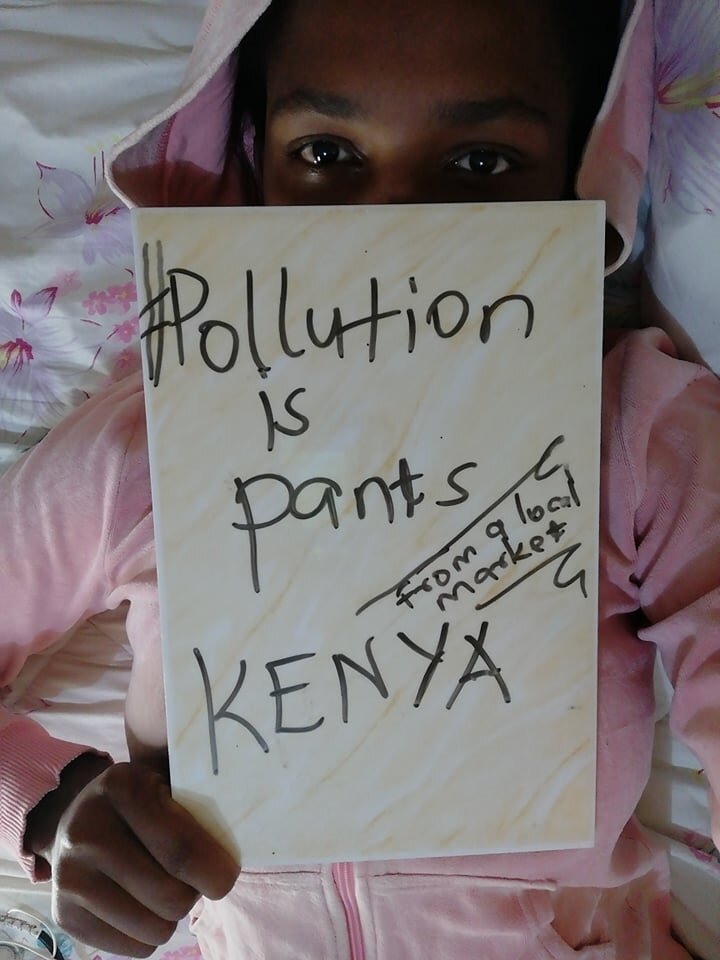
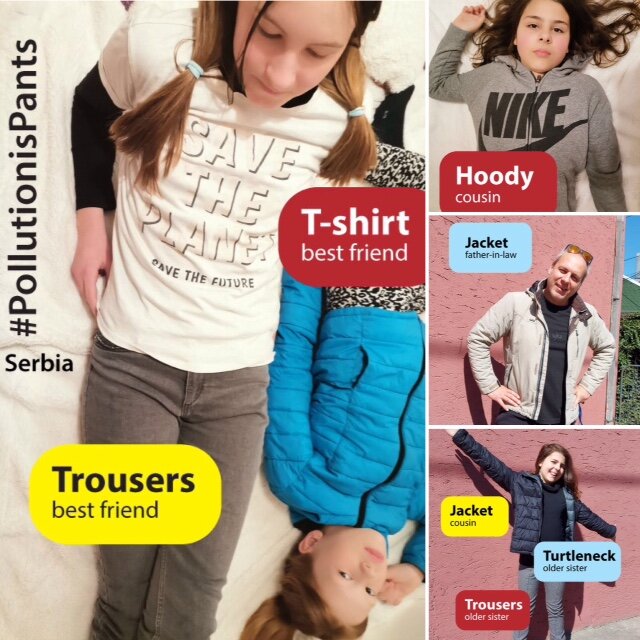
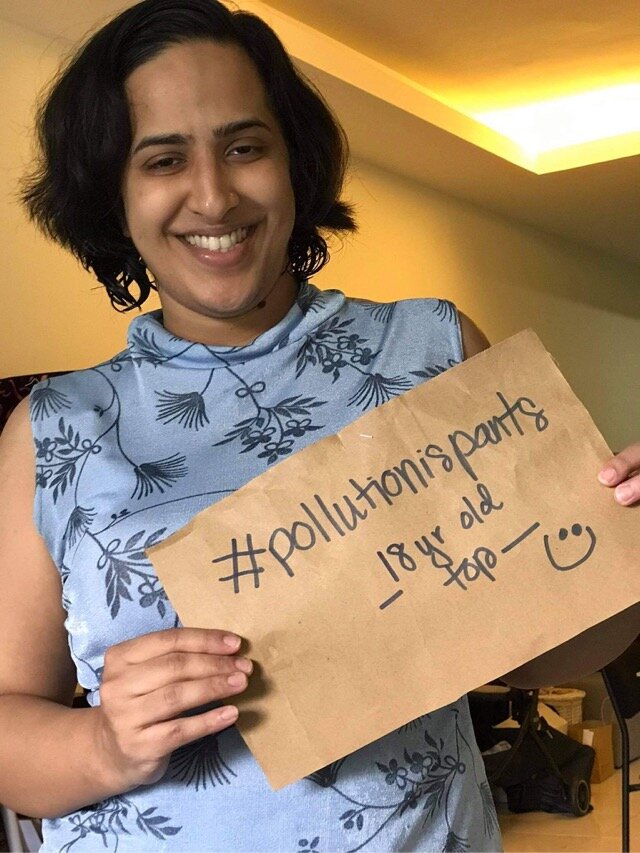
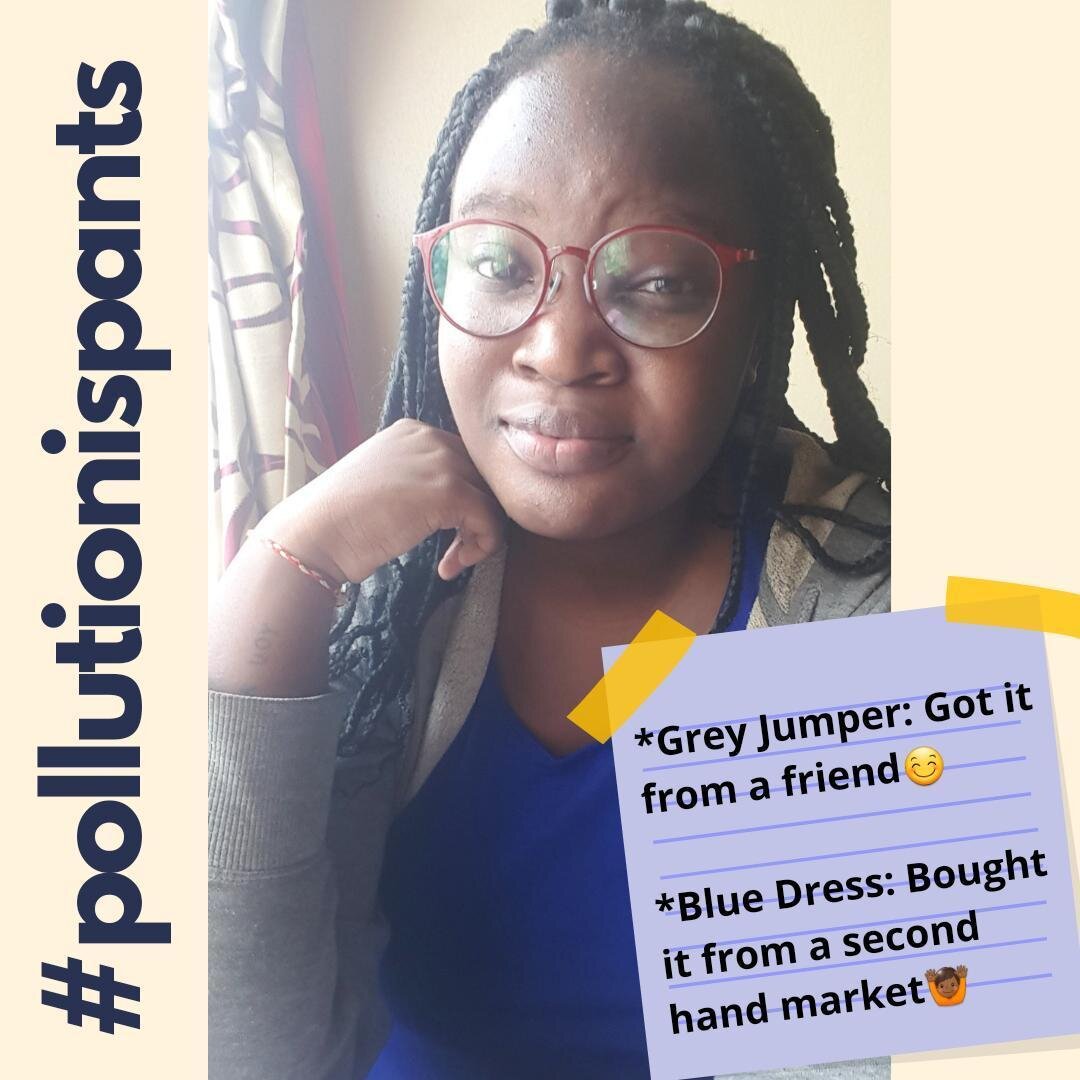
Where to buy and rent second-hand
Buying
British Heart Foundation, Oxfam, DePop, Preloved, Vinted, Thrift+, Re-Fashion, I Second That, Traid, Nearly New Cashmere, The Full Ensemble, Nuw, EBay, Facebook’s Marketplace, Shelter, Shpock, Gumtree and the Great British Clothes Swap.
Kids - Mini G Preloved (Adults too), Kida-majig, Vinted, I Second That, Katie’s Kids Clothes, Lovely Little Preloved, Peg Baby Clothes, Sweet Pea, Kidclo, Manifesto Woman (Adults too), Aylsham Kids, Build a Bundle and Little Pickles Markets.
Designer - Rebelle (Adults), Relux and Vestiaire Collective, and Treated with Love (Kids).
Vintage - Beyond Retro, By Wuzzy, Chillie London, The Curatory, Darling + Vintage, Retold Vintage and Rokit.
Upcycling and Repair
Renting
Adults - On Loan, Loanhood (London only), Hurr (Designer)
Kids - Bundlee, The Little Loop, Pure Bundle and Yearn.
How to pass on second-hand clothes
Charity shops, Facebook’s Marketplace, Freecycle, Freegle, the Great British Clothes Swap, Olio app, textile banks. You can also sell them on the websites listed above or consider donating them to Give Your Best, an app which allows refugees in the UK to choose for themselves the clothes they are donated. You could also organize a clothes swap in your street, office or community. Waste charity Hubbub talks you through how to do it and Love Your Clothes also offer simple tips for how to organise a clothes swap.
care and repair
All you need to know about how to look after your clothes can be found here -
Recommended reading
Eco Age online magazine
Fixing Fashion parliamentary report, 2019
Supporters
Be Planet Kind, Bumble Green Books, Ethical Consumer, Everyday Activism, Extinction Rebellion Families, Forward Coupar Angus, Friends of the Earth Scotland, Juno Magazine, Kidd3r, KoolSkools, The Little Loop, London Environmental Educators’ Forum, Loopster, Mary Creagh - Former Chair of the Westminster Environmental Audit Committee/ CEO of Living Streets, Naturesave Insurance, Pebble Magazine, People Learning About Nature in Tayport (PLANT), Plastic Busters, Plastic Free Family, Remode Youth, Scottish Environment Link, Students Organizing for Sustainability and Twin your Bin.

